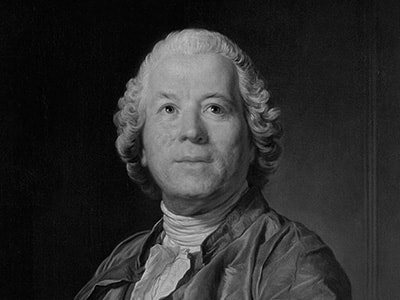
Christoph Gluck
(born Erasbach, Upper Palatinate 2 July 1714; died Vienna 15 November 1787)
Gluck is a Bohemian-Austrian composer of Italian and French opera, and a leading figure in opera in the second half of the eighteenth century.
He is celebrated today for his historical significance as the one composer who did the most to effect the transition between baroque and classical opera.
Gluck 's Musical Style
Beginning in 1762, he and the librettist Calzabigi wrote three ‘reform’ operas: Orpheus and Eurydice (Orfeo ed Euridice) (1762), Alceste (1767) and Paride ed Elena (1770). In these works, Gluck reacted against the stylization and conventions of baroque opera.
In the 1770s he became much interested in the French opera of Lully and Rameau, whose works he studied closely, and began writing new operas as well as revising several of his Italian works for the Parisian court and stage. In Paris, he found favour with Louis XVI’s consort Marie Antoinette, who awarded him a substantial annual pension.
Gluck 's Life
Gluck had musical interests from an early age, playing the violin and cello and singing. To avoid following in his father’s profession as a forester, he ran away aged 13 or 14 to Prague, where he became involved in music-making in the Bohemian capital. Largely self-taught as a composer, he was influenced by the many Italian operas by Vivaldi and Albinoni put on by the Prague Opera House.
He spent two years as a chamber musician to Prince Lobkowitz, a notable patron of musicians, in Vienna, before being engaged by a rival aristocrat to play in his orchestra in Milan, where he came into contact with Sammartini, one the most important figures in Italian music. Sammartini’s operas much influenced Gluck’s first efforts.
In 1745 he visited London: the Haymarket Theatre commissioned two operas from Gluck, which were not a success; he also met Handel and performed in concerts on the glass harmonica.
Between 1746 and 1761 he led the life of an itinerant musician, travelling widely across Europe, writing and performing his operas. In 1752 he settled in Vienna, which became his base for the remainder of his life and where he obtained several significant appointments through his wife’s influence.
In his lifetime, Gluck was both controversial and colourful, a man of enormous physical energy, who relished good food and good company, and had a passion for his art. He lived in great style in Vienna, dying in 1787 after defying his doctor’s advice and drinking a liqueur.
Notable Operas
- Alceste (Alcestis), 1767; French version, 1776; most well-known aria: ‘Divintés du Styx’
- Paride ed Elena (Paris and Helen), 1770
- Iphigénie en Aulide (Iphigenia in Aulis), 1774
- Armide, 1777



